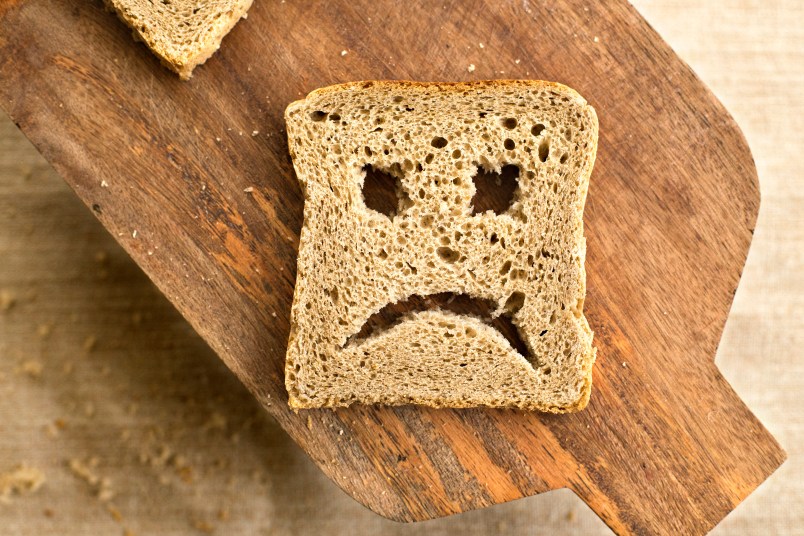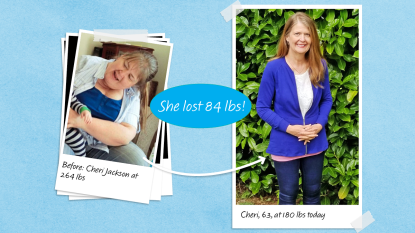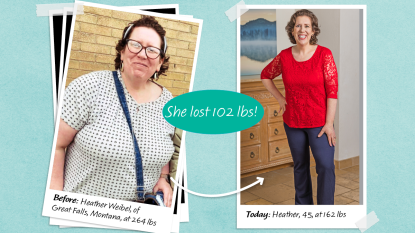Counting Calories Actually Isn’t the Best Way to Lose Weight, Study Suggests

Losing weight can be a daunting journey, made all the more overwhelming by the dozens of different diets out there that all have health gurus swearing by them. But now researchers have found that the easiest way to lose weight isn’t counting calories or cutting out specific macronutrients, such as fats or carbohydrates — it’s as simple as eating nutritious foods.
“We’ve all heard stories of a friend who went on one diet — it worked great — and then another friend tried the same diet, and it didn’t work at all,” says Christopher Gardner, PhD, lead author of the study. Initially, Dr. Gardner wasn’t necessarily interested in finding the “best” diet around, but rather, “What’s the best diet for whom?”
The study, done by the Stanford University School of Medicine and published in JAMA, analyzed 609 people — about half men and half women — aged 18 to 50 years old. Participants were divided into two groups and asked to adhere to a specific diet: low-fat or low-carb. The groups followed the diet for a year, and researchers tracked their weight, body composition, baseline insulin levels, and the amount of fats and carbs consumed in that time.
Although a low-carb or low-fat diet might sound extreme, participants were advised to follow a healthy approach to their eating. “We advised them to diet in a way that didn’t make them feel hungry or deprived,” Gardener says. “Otherwise, it’s hard to maintain the diet in the long run. We wanted them to choose a low-fat or low-carb diet plan that they could potentially follow forever, rather than a diet that they’d drop when the study ended.”
At the end of the one-year study, researchers found the average weight loss per person was 13 pounds. (However, the amount of weight lost varied greatly. For example, some people lost around 60 pounds and others gained about 15 to 20 pounds.) Unlike Gardner’s original hypothesis that certain diets would work well for different people depending on their genetic makeup, there was no relation between genotype patterns or insulin levels and the success of one’s diet.
Gardener says the biggest takeaway from the study is the basis of both diets is the same: Eat more nutritious foods and vegetables, and eat fewer processed foods with added sugar and refined flour. “On both sides, we heard from people who had lost the most weight that we had helped them change their relationship to food, and that now they were more thoughtful about how they ate,” Gardener says.
According to the Office of Disease Prevention and Health Promotion website, there are several components of a healthy diet, including:
A variety of vegetables, including different colored vegetables, legumes (beans and peas), and starches.
Whole fruits.
Fat-free or low-fat dairy products, including cheese, milk, and yogurt.
A variety of protein, including seafood, lean meats, poultry, eggs, and vegetarian options such as legumes, soy products, and nuts.
Oils, especially those derived from plants, such as canola, olive, and peanut oils.
The guidelines also suggest that small changes in daily eating habits can lead to improved health over time. To get started, change your focus to quality of food over quantity, and think about one little change — like drinking water instead of soda or swapping out your usual sandwich and fries for a salad — you can make this week.
More from FIRST
Having a Positive Attitude About Aging May Reduce Dementia Risk, Study Suggests
Too Much TV as a Toddler Linked to Unhealthy Adolescence, Study Finds
Women Who Breastfeed Are Less Likely to Develop High Blood Pressure, Study Suggests













